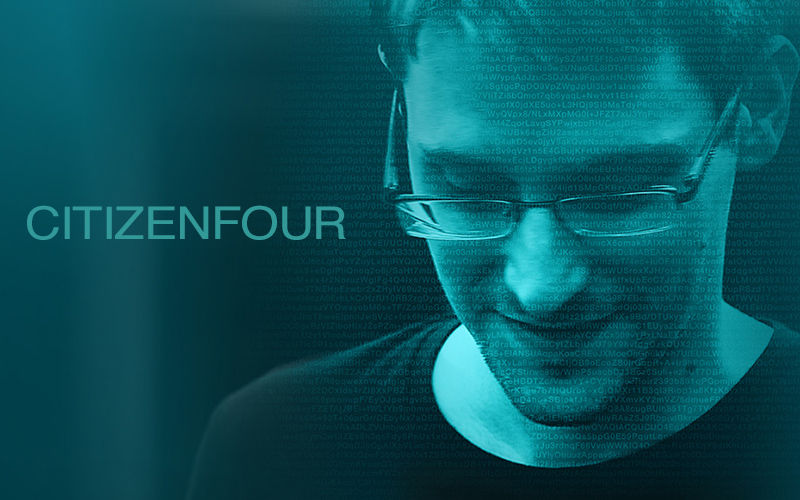
Citizenfour
The words that make the core of Oscar-winning documentary Citizenfour a fascinating masterwork are not gripping or engrossing or chilling. In fact, they are preceded by a laugh, one of the very few lighthearted moments in the film.
Immediately after meeting Ewen MacAskill, a British journalist for The Guardian, for the first time in a Hong Kong hotel, Edward Snowden jumps into the specifics of the information he plans to release. He continues uninterrupted for some time, dropping line after line of shocking, revelatory information on MacAskill. Eventually, the journalist has a question.
“So, I don’t know your name..?” he says.
The boyish-looking man in an undershirt sitting on the bed laughs.
“Sorry. My name is Edward Snowden,” he says, sounding it out so that it will be remembered. “I go by Ed.”
Citizenfour is a documentary filled with such words that grip you. Some of the most engrossing scenes are just drawn-out correspondences between Snowden and Glenn Greenwald or MacAskill — the journalists who broke the story — and some of the more chilling moments are voiceovers of simple emails sent among those three or filmmaker Laura Poitras.
Snowden’s is a name that has been burned in the minds of any news-watching citizen of the world since 2012. His name is one that draws eyes; whether those eyes see that name as synonymous with the treasonous likes of Benedict Arnold or the heroic fable of Paul Revere is another story.
What Citizenfour does is give life to that name through unprecedented access. Poitras has the cameras rolling as Snowden creates one of the biggest news stories in history and as the other dominoes immediately start to fall. The access was a gift from Snowden himself, who contacted Poitras along with Greenwald when he made his decision to go public. They were the only other people in the world who knew before the world knew.
Snowden approached Poitras because of her history covering controversial domestic issues. According to Poitras, her films My Country, My Country, about the war in Iraq, and The Oath, about the Guantanamo Bay detention center, earned her some government attention. Those seeking to proclaim Snowden a hero will find many things they like in this doc, particularly in the early parts when Poitras provides some backstory to the National Security Agency situation. Nonetheless, the director proves to be an exceptional choice for this kind of privilege, as she not only captures history, but also crafts a stunning piece of film in the process.
The opening shot of the movie sets a simple, chilling tone. The camera is pointed at the passing lights on the ceiling of what appears to be a tunnel as Poitras reads one of the first emails that Snowden sends her. He signs it “Citizenfour.” The coupling of the imagery and the words creates something basic but effective — in this case, almost frightening. The pairing of voiceover with long shots of everyday images is a brilliant trope in this film that Poitras does often and very well. Combined with some slick editing, a keen eye for subtle detail, a buzzing score and an effective use of black screen, it becomes evident that the Oscar statue Poitras held Sunday night was earned by more than just Snowden.
Later in the movie, several minutes are spent on a steady shot of Snowden sitting in bed watching the first news coverage of his leaks break. The TV is not shown; only the audio is necessary. On the surface, not much is happening. But what Citizenfour does that no other film could ever do is take us beyond the surface. We are not only in the room when history is made, but we also get a closeup of the face that will stand at the center of that history as it develops. There is no landmark breakthrough in this movie into the mind of Snowden or any kind of wild or radical thoughts he might have or aspects of his personality. But to watch him try and navigate a minefield one step at a time tells us a lot about the human mind in an especially unique predicament.
It does not matter whether you see Snowden as a hero, a patriot, a radical or a traitor — this documentary deserves to be seen. To not view it as an effort against Snowden, Greenwald or Poitras or what you think they believe in would only serve to deprive you of important art on the basis of something much smaller. Citizenfour is one slice of reality that must be tasted, if only because you will never be able to find anything like it anywhere else.
Citizenfour is now available to stream on HBO.



